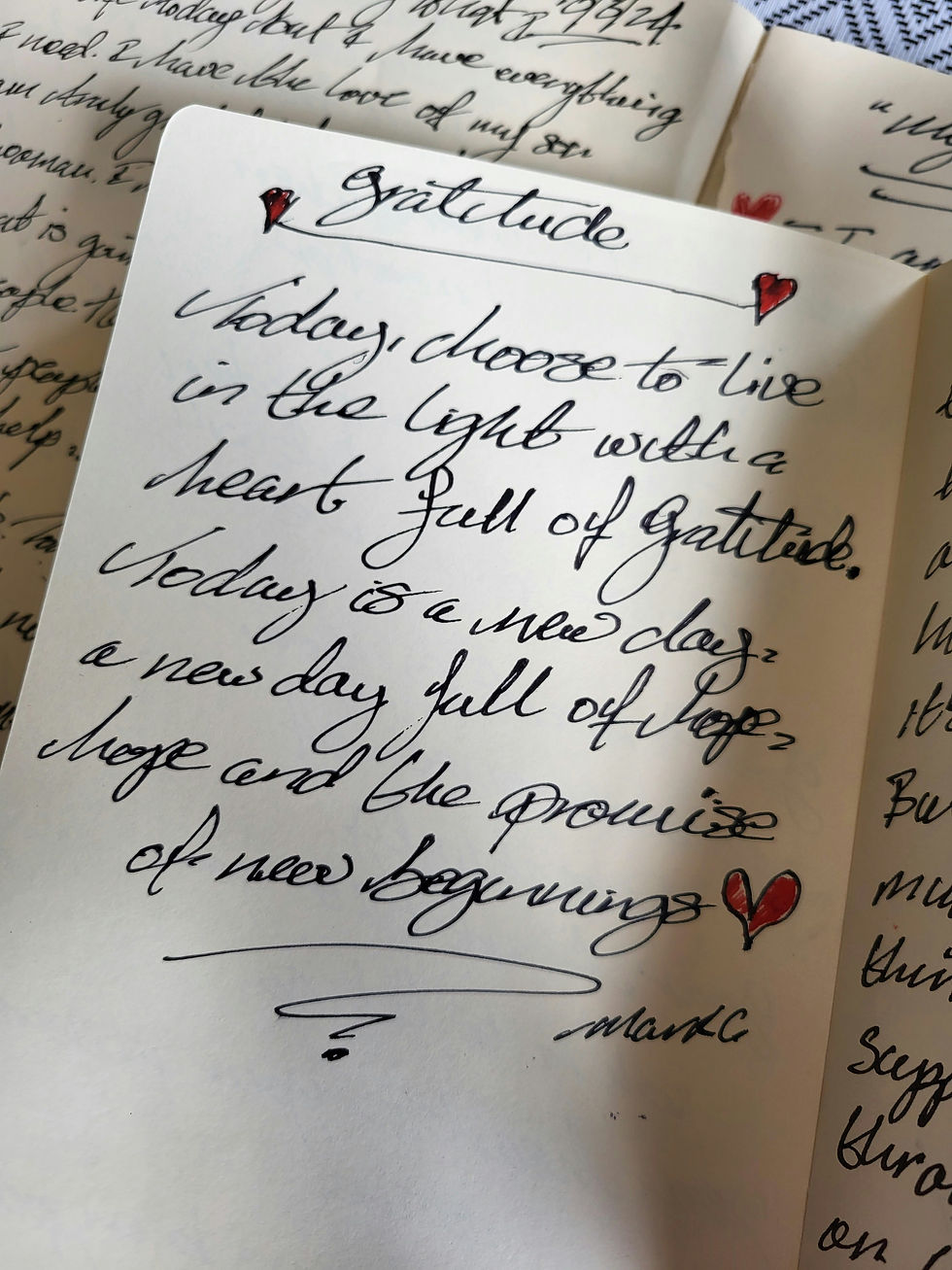Authentic Gratitude is a Daily Practice Needed to Defy Ordinary Leadership
- Tami Chapek

- Nov 24, 2025
- 4 min read

In leadership, we often mistake performance for power. We focus on projecting strength, control, and optimism. But when it comes to gratitude, hiding behind a mask of forced positivity is counterproductive. The true power of appreciation lies in its authenticity.
Gratitude is not a one-time event; it is a practice—it requires daily focus, consistent effort, and genuine commitment. Anchoring your gratitude practice in authenticity revolutionizes your self-leadership, your team relationships, and your entire organizational culture.
Authentic Gratitude as Self-Care: Defying the 'Perfect Leader' Myth
True leadership starts with self-awareness. When you practice gratitude authentically, you are honest about your own challenges and acknowledge the genuine moments of success, large and small. This focus ensures you are continually growing as a leader, refilling your cup, and bringing the best version of yourself forward.
The Authenticity Factor: Vulnerability
The authentic leader accepts that not every day is perfect. The daily gratitude practice is not about ignoring difficulties; it's about making a vulnerable, deliberate choice to seek and acknowledge the good despite the challenges. You must defy the ordinary expectation that a leader is a machine and rather focus on the humanity of leadership.
This honesty lowers the internal pressure to be "on" 24/7. Scientific research shows that this self-acceptance and focusing on the positive can regulate stress, making you more resilient and less reactive under pressure.
The Gratitude Practice: Making it Real
Tip: Instead of just listing successes, use a mindfulness-based practice. Take a Gratitude Pause each afternoon. Stop and mentally acknowledge three things you are genuinely thankful for, focusing on the feeling of gratitude. This grounds you in the present reality, not a curated façade.
Tip: If you choose to journal, ensure your gratitude is specific—don't write "I'm grateful for my job." Write, "I'm grateful for the clarity I gained during that client call because it helped me rethink the strategy."

Authentic Gratitude for the Team: Building Trust, Not Obligation
Gratitude delivered without authenticity—such as generic praise or forced compliments—is immediately recognized by employees and actively erodes trust. Authentic appreciation must be tied directly to a specific behavior and the impact it had.
The Authenticity Factor: Specificity and Integrity
When a leader's gratitude is authentic, it demonstrates integrity. It shows that the leader is observant, values the employee's unique contribution, and is willing to invest the emotional effort required to deliver meaningful praise. This is crucial for building trust and encouraging repeatable, high-value behaviors.
When appreciation is authentic, employees feel psychological safety. They know they are valued for their actions and effort, not just their final outcome. This encourages them to take risks and experiment, knowing their leader will see their commitment.
The Practice: Using BIM
Tip: Commit to using the BIM (Behavior-Impact-Meaning) Framework for all recognition. Don't say, "Good job." Say, "I noticed you proactively organized the data dashboard (Behavior); that saved the team four hours of work this week (Impact), which demonstrates the proactive ownership we value (Meaning)."
Tip: Practice gratitude for the Journey. Authentically appreciate effort and lessons learned, even if a project failed (because often we grow the most through difficult times). This reinforces that commitment is valued over mere success.
Authentic Gratitude as Cultural Infusion: Fostering Genuine Connection
A culture of gratitude is defined by how often and how genuinely appreciation flows horizontally (peer-to-peer) and vertically (leader-to-team and also team-to-leader). If the leadership's gratitude is performative, the culture will follow suit, leading to cynicism and low engagement.
The Authenticity Factor: Reciprocity and Transparency
Leaders must be transparent about their own reliance on others. When a leader publicly models authentic gratitude—even admitting they couldn't have achieved a goal without specific help—it fosters a spirit of reciprocity. It gives everyone permission to be honest about their dependencies, strengthening team bonds.
Strong, authentic gratitude is a powerful cultural anchor. Organizations with effective recognition programs see 31% lower voluntary turnover, because people feel a genuine sense of worth and belonging that transcends the transactional nature of work.
The Practice: Setting the Standard
Tip: Make appreciation public and specific on your intranet (or Slack, Teams, etc.) Enforce the rule that praise must follow the BIM structure to keep it meaningful and prevent it from dissolving into generic noise.
Tip: During leadership meetings, commit to a Credit Assignment Ritual. When celebrating a success, never claim ownership. Publicly name the specific individuals and teams responsible, demonstrating that the organizational reward structure prioritizes genuine contribution.

Your Call to Action: Defy the Ordinary
Authenticity is the engine of a sustainable gratitude practice, transforming it from a nice gesture into a strategic leadership tool. This commitment to genuine self-awareness and transparent recognition is what separates ordinary management from extraordinary leadership.
Are you ready to stop wearing the mask and redefine your impact?
The next step in your journey requires you to look deeper into the foundations of your leadership philosophy. Further explore the principles of vulnerability, intentionality, and authentic action in my new book Leadership reDEFYned: Defy the Ordinary to Unleash Your Potential.
Commit to the practice. Defy the ordinary. Lead authentically.

As the founder of WeInspireWe and creator of Leadership reDEFYned, Tami Chapek is a passionate advocate for authentic leadership and organizational change. She believes that true influence comes from a place of integrity and is committed to helping leaders achieve their full potential.
Connect with Tami today to explore our custom executive coaching and training solutions to ensure your leadership effectiveness includes gratitude for self, individual team members, and across the entire organization.
.png)



Comments